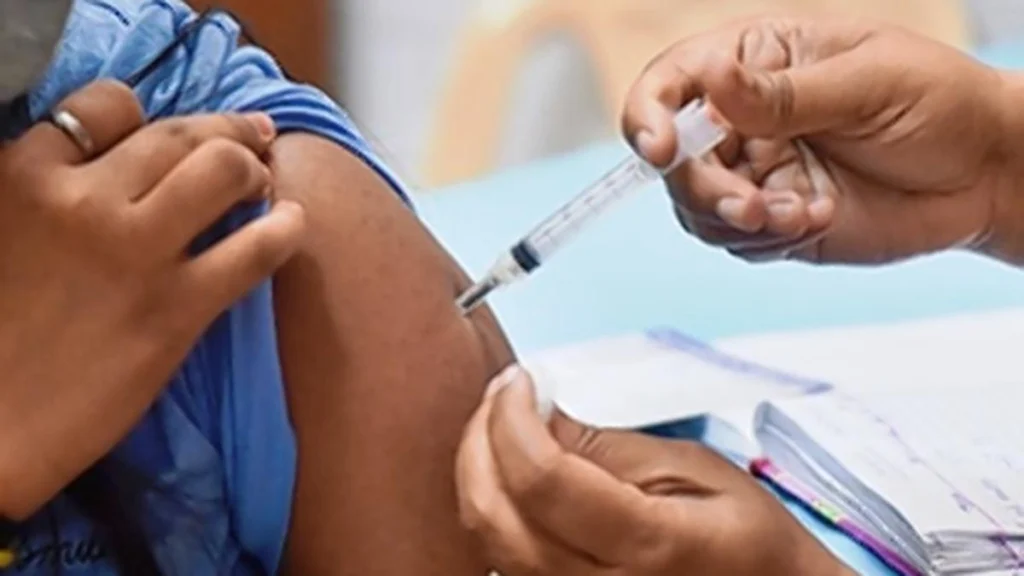Supreme Court asks man to file suit for damages after he claims disability post COVID-19 first dose

Supreme Court Asks Vaccine Injury Petitioner to File Suit for Damages
On April 21, 2025, the Supreme Court of India advised a petitioner — who claimed a 100% lower limb disability after receiving the first dose of a COVID-19 vaccine — to pursue compensation through a civil suit for damages instead of continuing with his constitutional petition.
This decision reignites the conversation around vaccine-related adverse effects, individual rights, and the path to legal recourse when unexpected health outcomes occur after public health initiatives.
What Was the Case?
The petitioner approached the Supreme Court stating that he became completely disabled in his lower limbs after taking the first COVID-19 vaccine dose. According to his lawyer, the man had no previous medical conditions and developed the disability shortly after receiving the shot.
His counsel argued that the vaccine caused the condition and that the petitioner deserved compensation. They also claimed that the health system offered no structured support or follow-up care for people facing rare but serious post-vaccine complications.
Supreme Court’s Response: File a Civil Suit
A bench led by Justice B.R. Gavai acknowledged the petitioner’s condition but said the case was better suited for a civil court, not a constitutional one. The judges emphasized that determining compensation for personal injury required examining evidence and expert testimony — something a civil court is equipped to handle.
The bench explained, “You are free to file a suit for damages. This forum is not the right place to seek individual compensation based on disputed facts.”
By redirecting the petitioner, the Court reaffirmed that constitutional courts cannot replace forums meant for personal injury claims, which often involve deeper factual investigations.
What This Means for Others Facing Similar Issues
The ruling makes it clear that those who claim serious health issues due to vaccinations should pursue remedies through the civil justice system. The case shows that courts prefer to deal with broader constitutional questions, not specific claims of harm that require technical evaluations and medical causality.
Rather than dismiss the matter entirely, the Court provided a pathway for the petitioner to seek justice — but through the correct channel.
The Petitioner’s Perspective
While respecting the Court’s advice, the petitioner’s lawyer expressed concern over the lack of accessible redressal mechanisms for vaccine injuries in India. “My client was healthy, independent, and working before the vaccine. Today, he cannot walk without assistance,” he said. “He followed government guidelines, and now he’s left to fight for support on his own.”
The lawyer also highlighted the absence of any official acknowledgment or compensation scheme for citizens who face adverse reactions after taking vaccines during public health drives.
Government’s Stand on Vaccine Safety
The Union Health Ministry maintains that the COVID-19 vaccines used in India are safe, thoroughly tested, and approved by regulatory authorities. Officials note that while minor reactions like fever or fatigue are common, serious adverse events remain extremely rare.
All vaccine recipients signed a consent form that outlined the possible risks, and authorities continue to monitor vaccine outcomes through the Adverse Events Following Immunization (AEFI) framework.
Even so, some health experts believe India should do more for individuals who suffer rare side effects. Many countries, including the United States and the United Kingdom, offer vaccine injury compensation programs to support such individuals.
Should India Introduce a Vaccine Compensation Program?
The case has triggered renewed debate about the need for a no-fault vaccine injury compensation system in India. Under such a system, victims would not need to prove negligence. Instead, they would only need to show a probable link between the vaccine and their condition.
Public health experts argue that introducing a scheme like this would increase trust in vaccination programs while ensuring justice for the very few who experience severe side effects.
“People stepped up to take the vaccine for the greater good,” said health policy analyst Dr. Anjali Mehra. “The least we can do is have a system in place for those who had to bear a personal cost.”
What Happens Next?
The petitioner now plans to approach a civil court to seek compensation. Although this path might take longer, it offers a better chance to evaluate evidence, bring in expert witnesses, and quantify damages based on legal precedent.
Meanwhile, lawyers and health advocates will likely continue to push for a national-level framework that supports individuals who suffer rare but severe vaccine-related outcomes.
Conclusion: Balancing Justice and Public Health
This case highlights the importance of having clear legal remedies for those harmed by public health interventions. While vaccines have saved millions of lives and played a key role in controlling the pandemic, those rare individuals who experienced serious side effects must not be overlooked.
The Supreme Court’s decision provides legal clarity, but it also calls attention to the gaps in India’s healthcare and legal systems when it comes to supporting vulnerable individuals. As the country prepares for future health challenges, building mechanisms that combine public trust with accountability will be critical.






